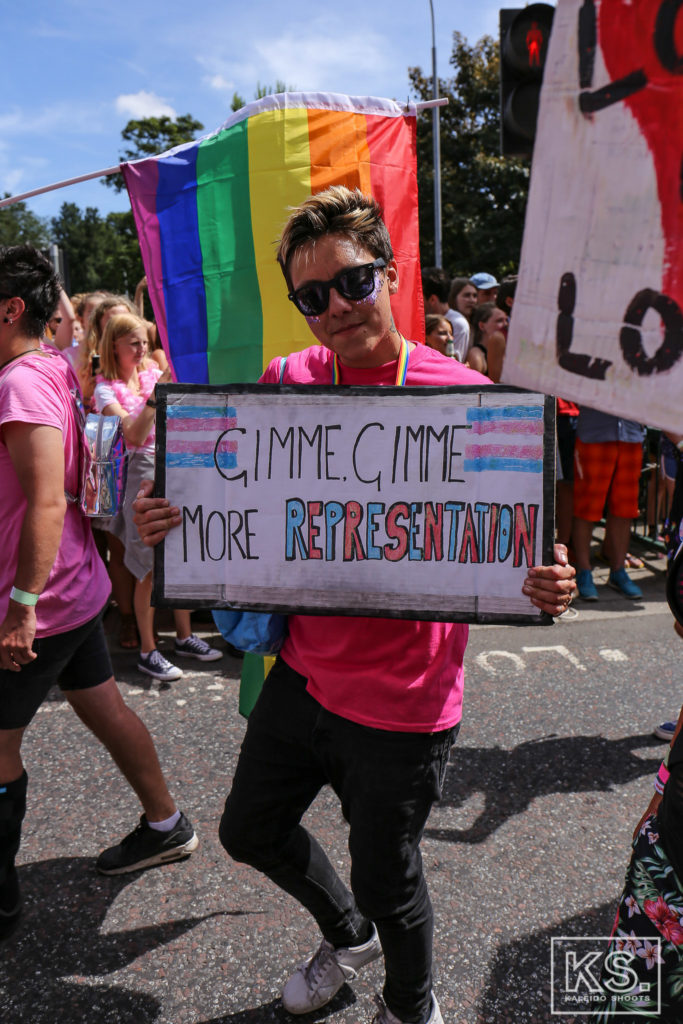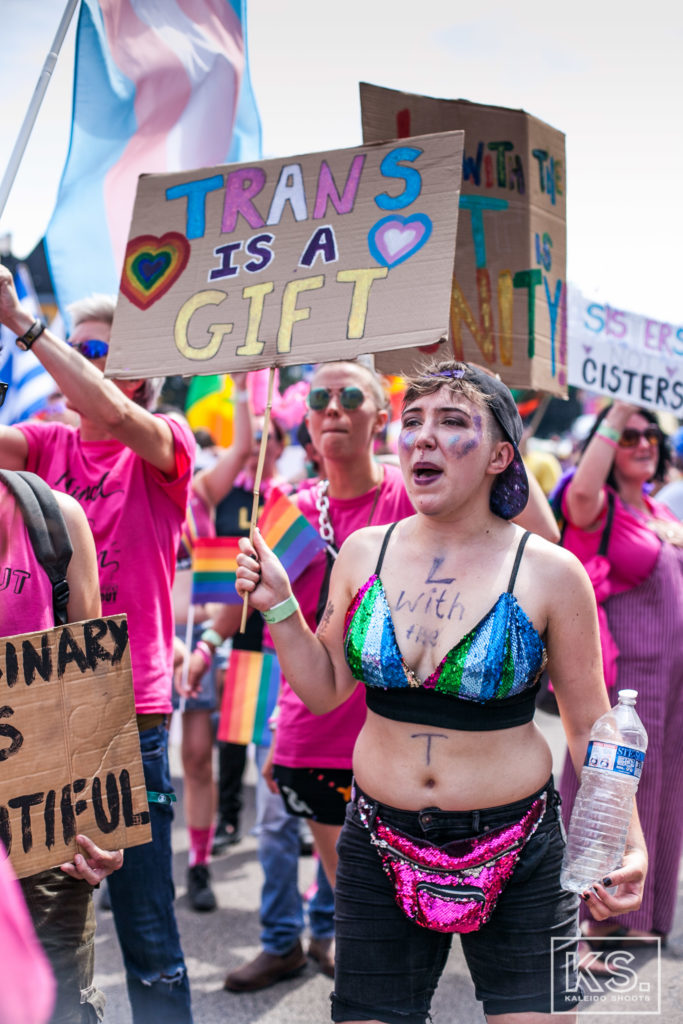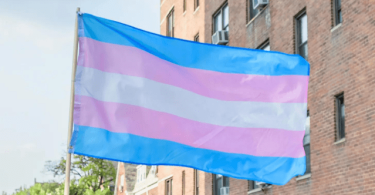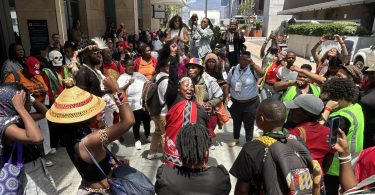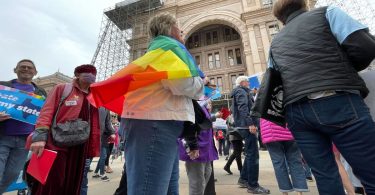‘I felt myself welling up with tears of joy, we were being celebrated and could be proud to be who we are.’
Jules Haydon Guaitamacchi and Rachelle Foster were among those who marched in the #LwiththeT walking group at this year’s Brighton Pride.
The #LwiththeT movement started initially as a video campaign of solidarity, aiming to unite LGBTI people and show support for the transgender community.
It kicked off after the lesbian anti-trans protesters infiltrated the Pride in London parade to spread messages of hate. They claimed that ‘trans activism erases lesbians’ and sent a letter to Stonewall, asking to remove the ‘L’ from ‘LGBT’.
The #LwiththeT led Brighton Pride
In the run-up to Brighton Pride, members from #LwiththeT met the organizers of Brighton Pride to talk about the universal need for transgender inclusivity.
Trans activist Liz Ridgeway and Jules’s partner Vicki Cook were the organizers of the #LwiththetheT’s inclusion in the parade. Thanks to their joint effort, the group who initiated the campaign led the parade in Brighton on Saturday 4 August.
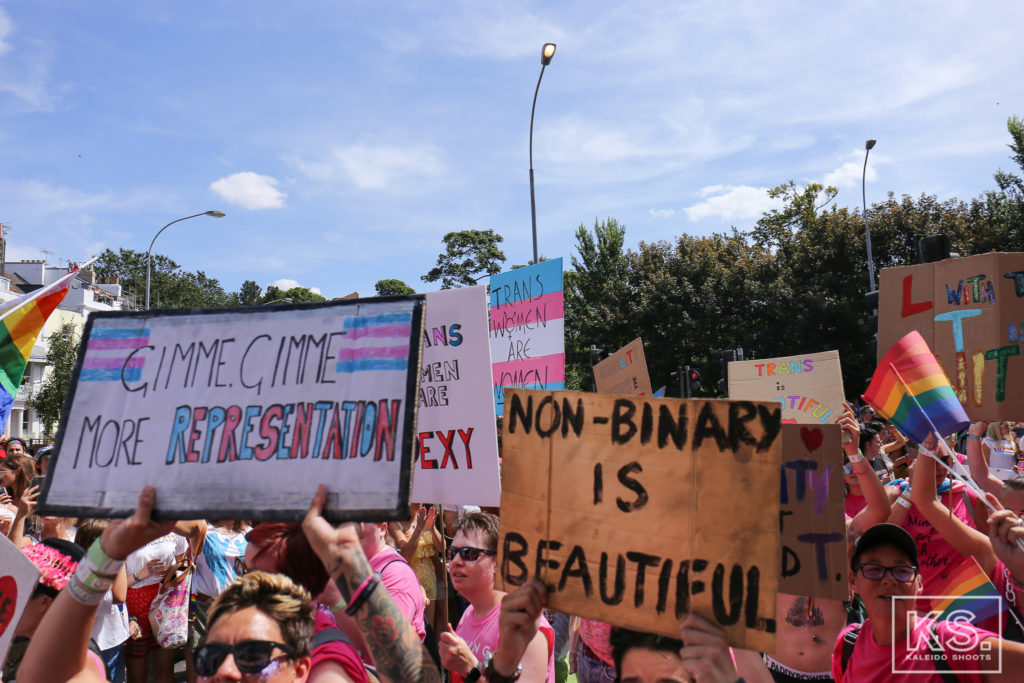
The group is made up of lesbians, trans women, trans men, non-binary people, bisexual people, pansexual people and gay men. They rallied together behind the #LwiththeT banner walking through cheering crowds.
Some spectators took a second to read the banner. Once they saw the link between the events in the London parade and our action, people shouted ‘thank you’. They also offered high-fives.
‘I kept looking back at my beautiful friend Liz, a trans female lesbian and her cis girlfriend marching together,’ says Jules.
‘We chanted messages like “please know your history, trans women fought for me” and “spread love not hate, trans lives are not a debate”.’
‘As we passed the odd trans flag in the crowds, we would cheer at them in acknowledgment. At one point, I noticed a person burst into tears uncontrollably. That’s when I left my post and hugged the person in my arms. I knew how they felt, finally I felt like we mattered.’
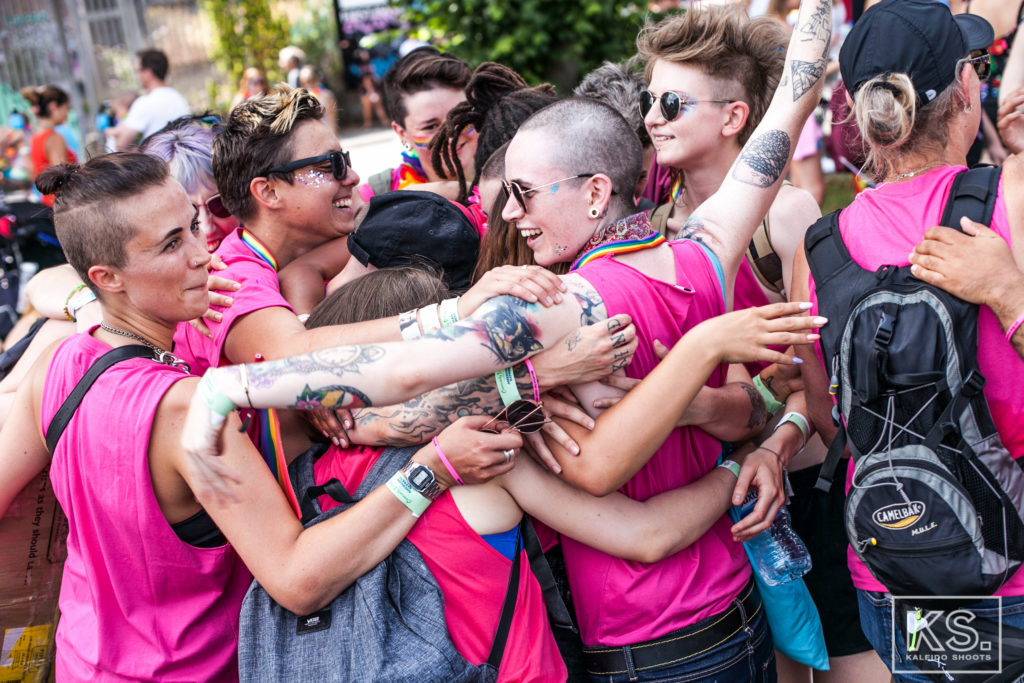
‘I experienced denial of my very existence’
Lesbians and queer women helped the #LwiththeT become a viral campaign. Increasing visibility and forming allies with campaigns like #LwiththeT will be the long-term solution in drowning out voices of hatred and ignorance.
‘Supporting every facet of the community and remaining united is crucial to improving our fight for equal rights,’ says Rachelle.
‘I’m a pansexual cis woman and I’ve experienced homophobia on the street when with female partners, I’ve had people tell me my sexuality isn’t valid, and I’ve been fetishized by strangers and even friends. But in my local queer community, I can’t ignore the intensity of suffering experienced by my trans siblings. It doesn’t mean the prejudice I experience is unimportant. It’s recognizing the bigger picture and the fact that it’s all part of the same fight.’
‘The #LwiththeT message works both ways and although I wish this campaign didn’t have to exist, I’ve never felt more supported by my queer family.’
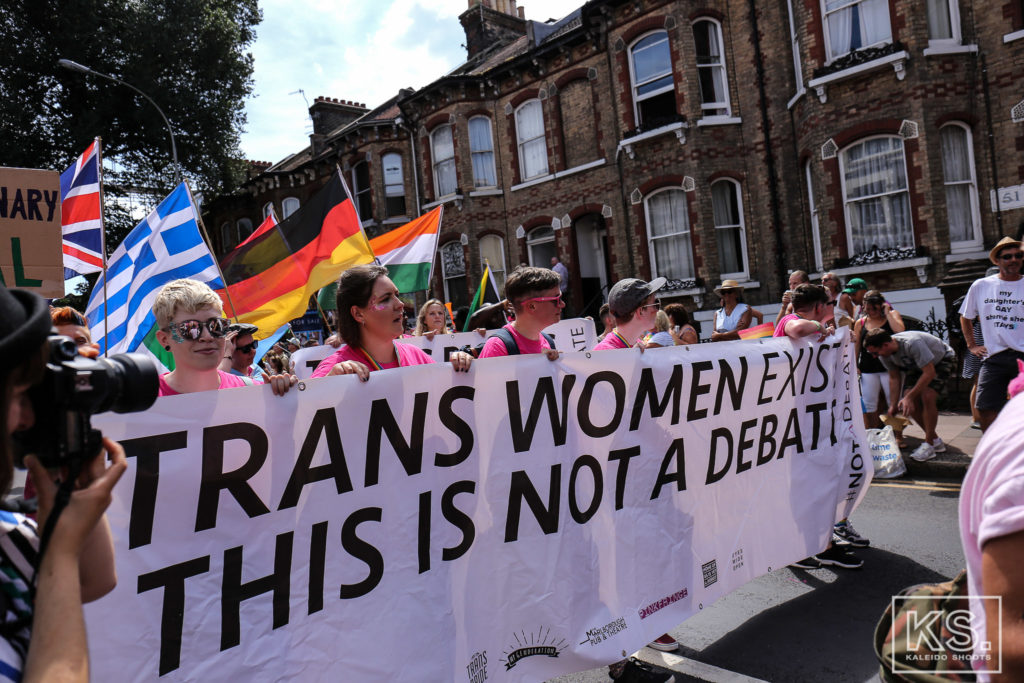
Jules says: ‘As a trans masc, non-binary person not only have I experienced denial of my very existence but I also have to live with erasure in my day to day life. Trans women, however, live in a world whereby their existence is magnified and they are the primary focus of violence.”
Discrimination is on the rise
In recent years we have seen discrimination rise in the UK and now an increase in minority groups have to fight for their rights.
In 2017, the UK government confirmed action would be taken to streamline the Gender Recognition Act. Since then, we have seen a rise in organizations gaining media platforms to exercise sophisticated hate speech against trans people.
Groups like Woman’s Place UK and Mayday 4 Women use the recent law reform proposals as a political backdrop for their meetings and ‘debates’ wherein they discuss the validity of trans identity.
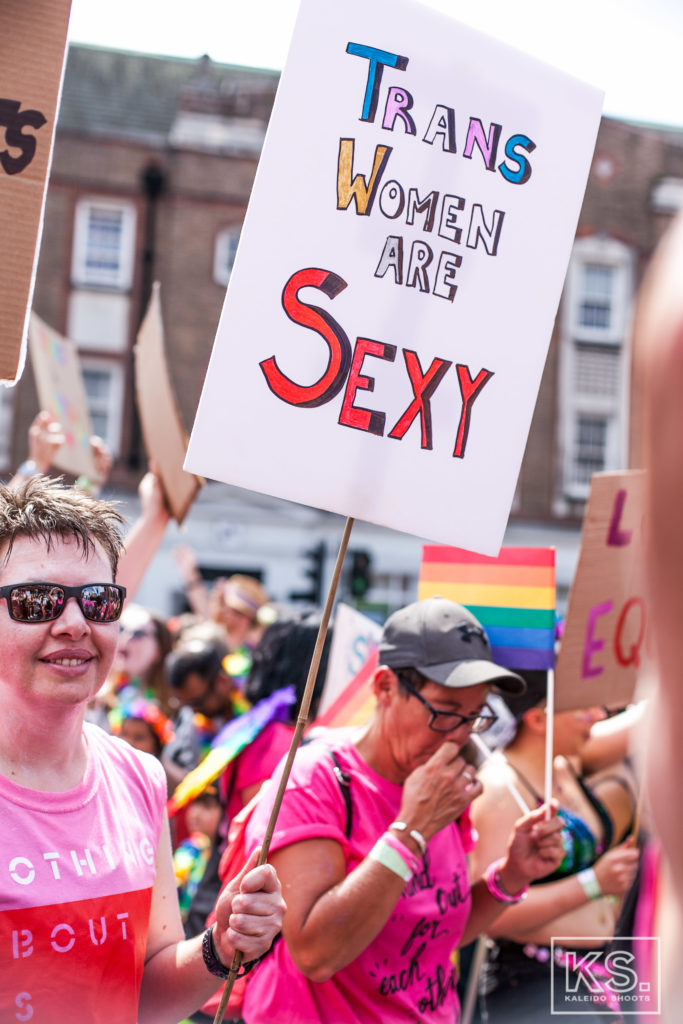
Though this action isn’t acutely violent, it does set a precedent for more sinister crimes to take place. It conveys that trans people are not trustworthy and therefore violence against them is either justifiable or not a concern.
Stonewall’s hate crime and discrimination report in September 2017, based on YouGov poll results in Britain, showed 41% of trans people experienced a hate crime in the last 12 months. This compares to only 16% of LGB people experiencing a hate crime in the same period because of their sexual orientation.
In 2017, the Human Rights Campaign tracked at least 28 deaths of transgender people in the US due to fatal violence. This is the highest number they have recorded. The cases involve clear anti-transgender bias. The death toll in 2018 is already at 16, and the number is growing.
With high rates of violence against trans people, the community needs their allies more than ever before.
